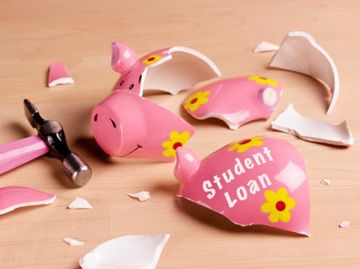The average American college graduate with student loan debts owes more than $22,700 -- and two out of every three graduates leaves school with not only a diploma, but with education debts.
Depending on how many years you attended school -- including undergraduate and graduate work -- and your financial situation at the time, it's possible to have accumulated more than one student loan while on campus. Loan consolidation can help you lower your monthly payments, may help you defer or save you from defaulting on your loan, and may give you more time to repay (as much as 30 years). Federally guaranteed education loans are managed through the U.S. Department of Education and their Direct Loan program. Direct Loans are consolidated into Direct Consolidation Loans.
Advertisement
Direct Consolidation Loans come in different flavors. Consolidating loans through a standard repayment plan offers student loan holders a fixed monthly payment (monthly payments may go as low as $50) over a fixed period of time (10 to 30 years), determined by how much you owe. There are also plans that offer graduated repayment schedules, extended repayment and fixed monthly payment options, as well as flexible plans such as pay-as-you-earn programs and income-contingent repayment plans for low-income loan holders.
There are a few things that make you eligible for a consolidation loan. First, and perhaps the most obvious, you need to have at least one federal student loan such as a Subsidized or Unsubsidized Federal Stafford Loan, Direct PLUS Loan, PLUS Loan that is part of the Federal Family Education Loan (FFEL) Program, Federal Perkins Loan, Federal Nursing Loan, Health Education Assistance Loan or Supplemental Loan for Students (SLS) [source: Federal Student Aid]. Your loans can be either in a grace period (a period when you're not making payments) or in repayment; loans that are in default can be consolidated through special repayment plans, either through an income-contingent repayment schedule or income-based repayment plan. Let's talk about the advantages and disadvantages of consolidating student loans, next.
Advertisement



